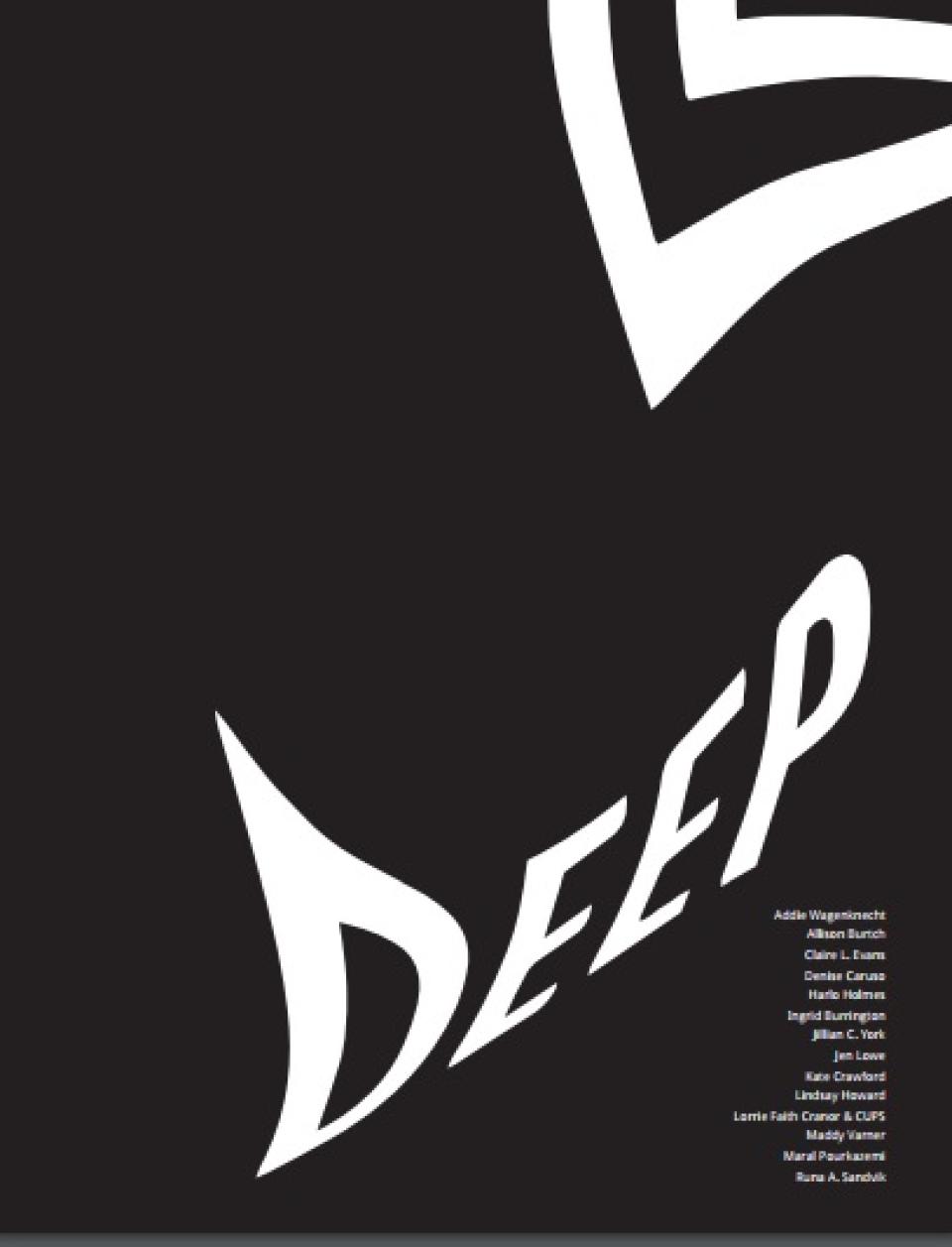
Recently, Addie Wagenknecht, the Frank-Ratchye STUDIO for Creative Inquire Fellow, organised a congress of cyberfeminist researchers to examine how themes of privacy, security, surveillance, anonymity, and large-scale data aggregation are problematised in the arts, culture and society. The congress, titled Deep Lab, brought together a group of internationally acclaimed new-media artists, information designers, data scientists, software engineers, hackers, writers, journalists and theoreticians – to engage in critical assessments of contemporary digital culture. In their collaborative work aimed to exploit the potential for creative inquiry lying dormant in the deep web, the Lab participants conducted research that resulted in the Deep Lab book, a video album of ten public presentations, and an 18-minute documentary. In the following interview, we speak to Addie about Deep Lab’s initial research, the congress, publication/s, and their future plans.
Lamia Kosovic (LK): Recently, you organised a congress of cyberfeminist researchers called Deep Lab, which formed part of the Frank-Ratchye STUDIO for Creative Inquiry at Carnegie Mellon University. Can you tell us a bit about the congress, the generating force behind the research, and the participants that took part in it?
Addie Wagenknecht (AW): The residency was sponsored by the Frank-Ratchye STUDIO and the Andy Warhol Foundation. I was approached by the director, Golan Levin, around the time the Snowden revelations were appearing, to do work around surveillance- something which had been a topic in my work for a long time. I wanted to develop something which was much more far reaching than just the art world. One of the frustrations I’ve had with my art production is how limited the audience is. So I started thinking of ways to develop something more inclusive and more far reaching than the gallery walls. At the same time, I could see a much needed place for women working on these topics to come together- so developing the lab felt necessary.
I took all the money I would have used for developing the work and paying myself a good artist fee and spent it on flying out 12 of the smartest, most inspirational and interesting women I knew to spend a week together, hoping this could mark the start of a shift in cultures.
LK: This collaboration with new media artists, data scientists, hackers, writers, etc. resulted in the Deep Lab book, a video album and an 18-minute documentary film. Tell us about these research products and how, in your opinion, do they contribute to the contemporary artistic, cultural and theoretical discourses and inquiries concerning cyberfeminism and digital culture at large?
AW: The first week we came together was really meant to be more of an incubation period, to spend time together face to face, to get to know one another, to learn dynamics, to talk. The week ended up contributing to a much larger cultural discourse, beyond what I was really prepared to have happened to us that quickly. I found a lot of what we did was misconstrued and we were approached to justify ourselves to a larger discourse.
LK: What are the methodological lenses that you used in the research? As contemporary political and cultural feminists and human right activists have taught us, the intersections between forms and/or systems of oppression, domination and discrimination – such as racism, sexism, homophobia, etc., cannot be examined separately. After conducting this research, did your findings/thoughts/outcomes reveal something about this intersectionality, and if so, what would that be?
AW: I really like what Deep Lab participant Allison Burch says: “Women are not an oppressed class. Meaning that women can hold enormous positions of power within neoliberal and capitalist institutions, and be massively oppressed as migrant workers, housekeepers and nannies (i.e. who is taking care of all the rich womens’ kids?). In the United States, at least, I can own property, marry or divorce when I want, pass capital off to my children, and provide for myself (at least theoretically). So I’m not interested in advancing the idea that women can struggle just as hard as men to compete for the opportunity to more skilfully exploit others.” I interpret this as acknowledging sexism and misogyny as an issue, and realising that we will never actually solve larger social issues if that is our focus because these topics are focusing on the success of an individual and primarily in western civilisation without taking into account women outside these walled gardens… so in order to “fix” this system, we have to move from micro to macro in scale.
LK: Can you elaborate a bit more on the hidden potential for creative inquiry that you acknowledge on the deep-lab website, “lying dormant within the deep web”?
AW: We take as natural the notion that our internal lives and the public record of our lives should have a one-on-one relationship, that we should move through existence always documenting, but that’s not power. It feels like power because it helps us to remember the past, but it only serves the agents of the technological economy as they sell our own lives back to us. I’m fascinated by what people don’t share online publicly, by the relationships that leave no unencrypted traces.
LK: Finally, what are your plans for further research, collaborations, if any?
AW: We are working on our 2016 agenda right now within the group – this will include some public events in the UK and US as well as some internal research.
- 6167 views






Add new comment